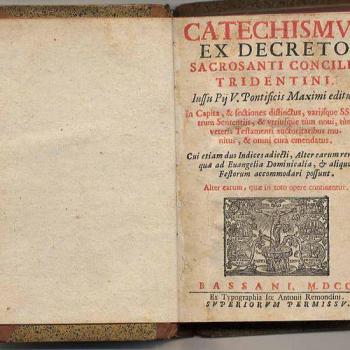Lately, while reading online discussions in Catholic Facebook groups, I’ve observed comments about mortal sin that are along these lines:
“[Sin X] is objectively mortal sin.”
or
“[Sin Y] is always a mortal sin in every circumstance.”
This seems to be a common misconception, so I wanted to write a blog post to clear it up.
What Is the Difference?
The Catechism of the Catholic Church makes a clear distinction between grave sin and mortal sin.
1857 For a sin to be mortal, three conditions must together be met: “Mortal sin is sin whose object is grave matter and which is also committed with full knowledge and deliberate consent.”131
1858 Grave matter is specified by the Ten Commandments, corresponding to the answer of Jesus to the rich young man: “Do not kill, Do not commit adultery, Do not steal, Do not bear false witness, Do not defraud, Honor your father and your mother.”132 The gravity of sins is more or less great: murder is graver than theft. One must also take into account who is wronged: violence against parents is in itself graver than violence against a stranger.
Simply put, a mortal sin is always a grave sin, but not every grave sin is a mortal sin.
It is impossible for any sin to be “objectively mortal sin” or “a mortal sin in every circumstance” because mortal sin is subjective and not objective.
Per the CCC, a sin can only be mortal sin if all three conditions have been met: grave matter, full knowledge, and complete consent. If any of these elements are lacking, the sin cannot be mortal.
1859 Mortal sin requires full knowledge and complete consent. It presupposes knowledge of the sinful character of the act, of its opposition to God’s law. It also implies a consent sufficiently deliberate to be a personal choice. Feigned ignorance and hardness of heart133 do not diminish, but rather increase, the voluntary character of a sin.
It is not theologically correct to say “everyone who has an abortion commits mortal sin” or “everyone who misses Mass on Sunday has a mortal sin on their conscience.”
We can’t know if either of those two statements are true because we don’t know if “everyone” who has committed them has met the three criteria for mortal sin. It is more theologically precise to make statements such as “abortion is gravely sinful” or “contraception is an intrinsic evil, which means it is grave matter,” and leave the judging of the mortal sinfulness up to a person’s confessor and/or God Himself.
















